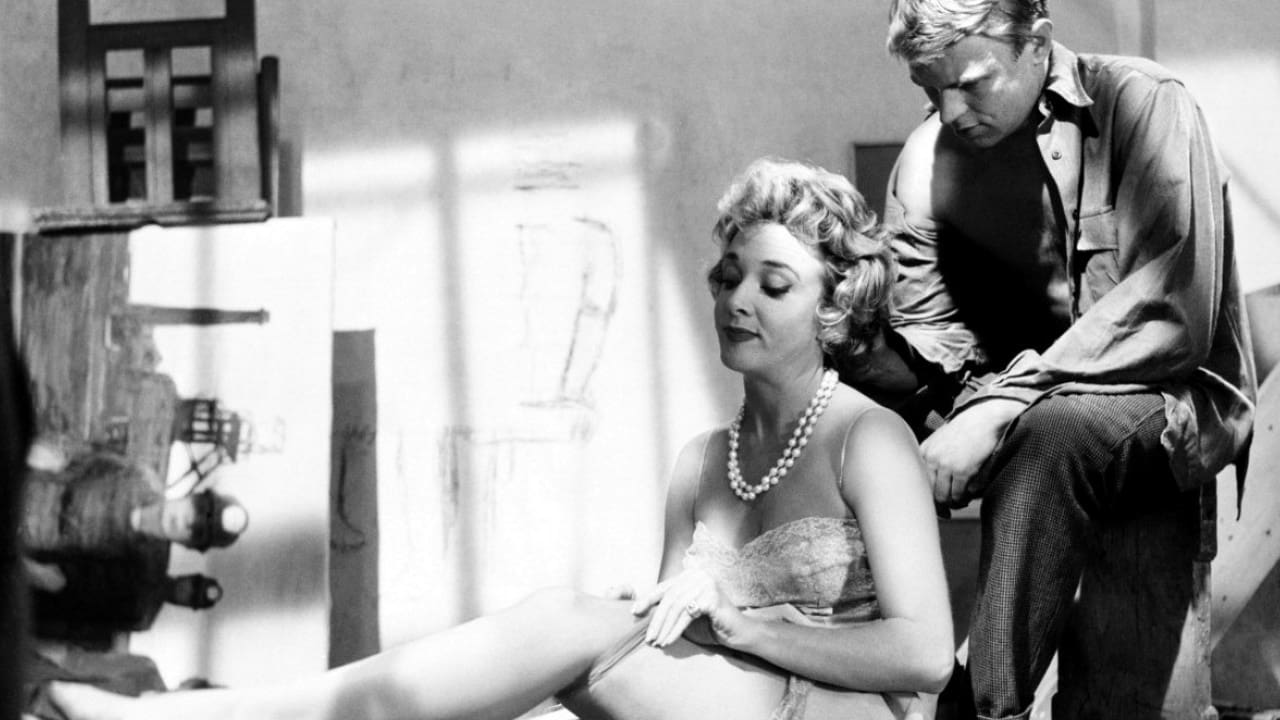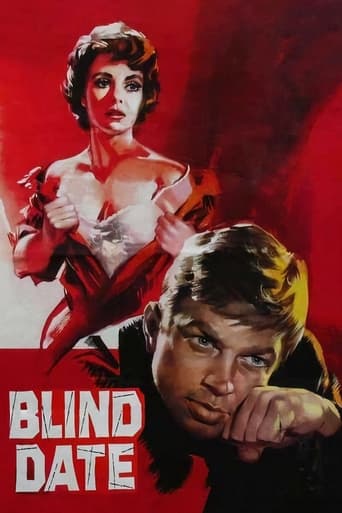

I wouldn't say this is a film to stimulate the senses, not one packed with energy, but it's success lies very much in its subtlety, delivery and superb performances.It's a wonderfully stylish film, it looks so good, from the very bright start to the rather downbeat conclusion. The story is fed out very slowly, with the story unravelling teasingly slowly. As a mystery it works well, what seems so obvious initially isn't quite the case, so much more is happening, with a twist waiting.Great performances, Hardy Kruger was fantastic in the lead role. Very much a battle of the classes, with a hugely socialist element on show, but it fits in well.Very enjoyable, slick movie. 8/10
... View MoreThis may be a black and white film is a great film, but is well worth a viewing as the three leading members of the cast were first rate and it should hold your interest throughout. Stanley Baker was a tremendous actor and plays a determined but sympathetic DI. Hardy Kruger a struggling young artist and Micheline Presle has such poise and beauty that she looked good enough to eat. Gordon Jackson also makes a believable Police Sergeant. As for the rest of the cast in this film they all have the right 1950's 'air' about them The plot has a nice number of twists and the locations in central London and around the then small London Heathrow Airport are nice and nostalgic. London as it used to be.
... View MoreFor French star Micheline Presle this movie must have emitted the faint aroma of deja vu; twelve years before she had starred in a French classic Le Diable au corps (Devil In The Flesh) in which she was the love object of a much younger man, as is the case here, but there the comparison ends. Le Diable au corps reeked Class, from the writers, Jean Aurenche and Pierre Bost, through the director, Claude Autant-Lara, to Presle's co-star, Gerard Philipe; match that with their equivalents here and it's not even funny, we're talking Bush League and/or Second Eleven depending on whether you take your metaphors from baseball or cricket. I suppose the likes of Stanley Baker, Hardy Kruger, Gordon Jackson etc, do their best but alas, their best is light years away from the best of Aurenche, Autant-Lara and Philipe. One to see only for Presle, a class act in whatever language.
... View MoreIt can sometimes be interesting to study the early work of directors who were later to emerge as important figures in cinema. Some show little indication of what is to come (Carol Reed's "Bank Holiday " for instance) while with others the fingerprints are all there (Hitchcock's "The Lodger" and David Lynch's "Eraserhead"). Joseph Losey falls somewhere between these two extremes. An early work such as "Blind Date" has a competence and clearheaded sense of narrative flow that place it on a higher level than most B-style thrillers to emerge from British studios in the '50's but there is little of the original stamp that was to mark his later work such as "The Servant", "The Go-between" and "Accident". These films provide fascinating commentaries that an outsider from the USA brought to bear on the British class system. There is a little in "Blind Date" about the social hierarchy within the British police force, but this is peripheral to Losey's main task of presenting a neat little thriller well. He keeps the tension going nicely to begin with, with a young Dutch artist visiting a flat where he expects to find a woman he has been having a liaison with, only to find himself soon embroiled with the police. The script has a neat way of evading what is going on until some way into the film. Some of the flashbacks go on for rather too long and are somewhat weakened by a rather wooden performance by Micheline Presle as the woman of mystery. Hardy Kruger, on the other hand, as the young Dutchman is excellent. We really identify with his frustration at finding himself in a situation that is beyond his comprehension and control. As the main detective Stanley Baker plays cat and mouse with his customary skill. "Blind Date" is in so sense an important or significant film, but the fact that it was competently made by a director who was later to produce some outstanding works of British cinema makes it worth a look. There are two other good reasons for watching - photography by Christopher Challis and music by Richard Rodney Bennett - both considerable artists in their respective fields.
... View More